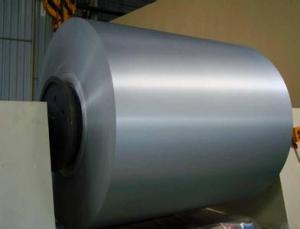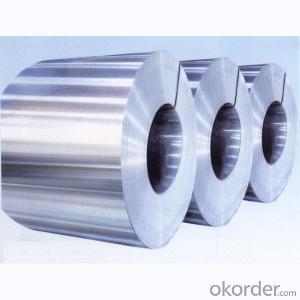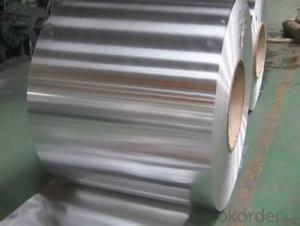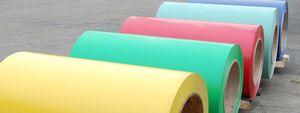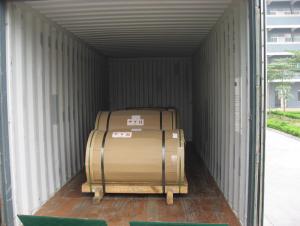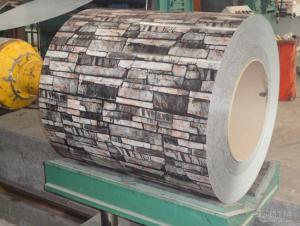Color Coated Aluminum Coil Custom 1xxx for Construction
- Loading Port:
- China main port
- Payment Terms:
- TT or LC
- Min Order Qty:
- 5 g/ft
- Supply Capability:
- 100000 g/ft/month
OKorder Service Pledge
OKorder Financial Service
You Might Also Like
1.Structure of Aluminum Mill Finished Coils 1XXX Used in Construction Description
Aluminum Mill Finished Coils 1XXX Used in Construction has great ductility, heat conductivity, anti-corrosion and moisture resistance properties.
Aluminum Mill Finished Coils 1XXX Used in Construction is widely used for PP cap stock, hot rolled thick plate, PS base plate, aluminum curtain wall base plate, the traffic sign ,air-conditioner heat and exchangers, food container, household foil, pharmaceutical packing, cigarettes packing.
2.Main Features of Aluminum Mill Finished Coils 1XXX Used in Construction
• Superior quality of raw material
• Reasonable and stable chemical composition
• Accurate tolerance
• Goode mechanical property
3.Aluminum Mill Finished Coils 1XXX Used in Construction Images
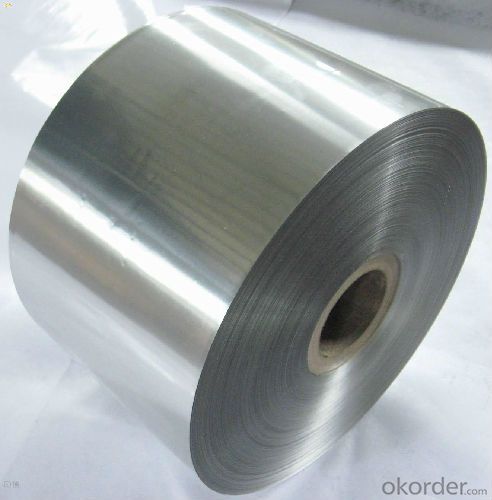
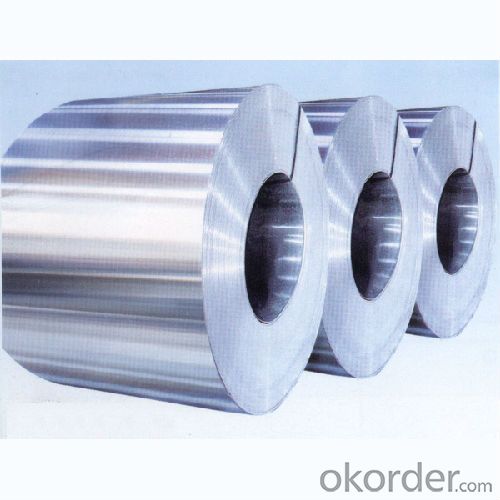
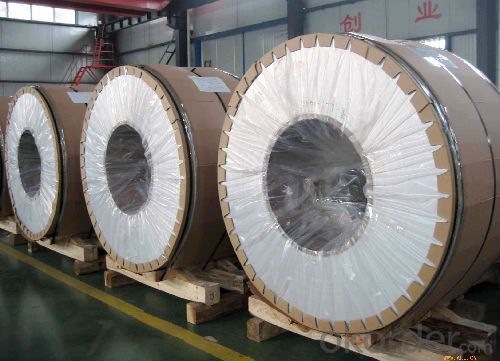
4.Aluminum Mill Finished Coils 1XXX Used in Construction Specification
Alloy | AA1xxx (AA1050, AA1060, AA1070, AA1100 etc. |
Temper | H14, H16, H18, H22, H24, H26, H32, O/F |
Thickness | 0.2mm -- 100mm |
Width | 30mm -- 1700mm |
Standard | GB/T 3880-2006,EN,ASTM,JIS |
5. FAQ of Aluminum Mill Finished Coils 1XXX Used in Construction
A.When will you deliver the products?
The Aluminum Mill Finished Coils 1XXX Used in Construction will be delivered within 35 days after receiving advanced payment or original L/C.
B. Now which countries do you export your goods?
Now we export to South East Asia,Africa, North America,South America ect.
- Q: The user is asking if there are any recycling programs specifically for aluminum coil in their country.
- <p>Yes, many countries have recycling programs for aluminum coil. These programs aim to collect and recycle aluminum coils to reduce waste and conserve resources. The availability and specifics of these programs can vary by country, so it's best to check with local waste management authorities or recycling centers for information on programs in your area. Some countries also have legislation mandating recycling of certain materials, including aluminum, to encourage participation and reduce environmental impact.</p>
- Q: What specific tools are required for handling and working with aluminum coils?
- <p>Working with aluminum coils typically requires specialized tools to ensure safety and efficiency. These include cutting tools like metal snips or shears designed for aluminum, which are crucial for cutting the coils without damaging them. Additionally, a coil carrier or uncoiler is necessary for handling and unrolling the coils without causing injury or deformation. Protective gear such as gloves and safety glasses is also essential to prevent injuries from sharp edges or debris. For more precise work, a metal straightener or leveling machine may be needed to correct any warping in the aluminum coils.</p>
- Q: How are aluminum coils used in the production of furniture and fixtures?
- Aluminum coils play a crucial role in the production of furniture and fixtures, particularly in the manufacturing of lightweight and durable pieces. These coils are typically made from high-quality aluminum alloys, which offer excellent strength-to-weight ratios and corrosion resistance properties. One common application of aluminum coils in furniture production is in the creation of frames for chairs, tables, and other seating arrangements. The lightweight nature of aluminum makes it easier to handle and transport, while still providing the necessary structural integrity. Aluminum coils can be easily formed, welded, and assembled into various frame designs, allowing for flexibility in creating different furniture styles. Additionally, aluminum coils are often used in the production of fixtures such as cabinets, shelves, and display racks. These coils can be cut, shaped, and bent to create customized components that fit specific design requirements. The corrosion resistance of aluminum ensures that these fixtures can withstand exposure to moisture, making them suitable for both indoor and outdoor settings. Moreover, the use of aluminum coils in furniture and fixture manufacturing provides benefits beyond their physical properties. Aluminum is a highly recyclable material, making it an environmentally friendly choice. It also offers cost-effectiveness due to its durability and low maintenance requirements, reducing long-term expenses for both manufacturers and consumers. In summary, aluminum coils are integral to the production of furniture and fixtures due to their lightweight, durable, and corrosion-resistant properties. Their versatility allows for the creation of various designs, while their recyclability and cost-effectiveness make them a preferred choice in the industry.
- Q: Are aluminum coils suitable for use in the automotive industry and what are their applications?
- <p>Yes, aluminum coils are widely used in the automotive industry due to their lightweight, high strength, and corrosion resistance. They are utilized in various applications including vehicle body panels, engine components, heat exchangers, and electrical wiring. Aluminum's recyclability and energy efficiency also contribute to its popularity in automotive manufacturing, helping to reduce vehicle weight and improve fuel efficiency while adhering to environmental standards.</p>
- Q: Are there any environmental benefits to using aluminum coils?
- Yes, there are several environmental benefits to using aluminum coils. Firstly, aluminum is a highly recyclable material, meaning that it can be reused multiple times without losing its quality. This reduces the need for extracting and processing new raw materials, saving energy and reducing carbon emissions. Additionally, aluminum coils are more lightweight compared to other materials, reducing transportation fuel consumption and associated greenhouse gas emissions. Moreover, aluminum has a longer lifespan, making it more durable and reducing waste generation. Overall, using aluminum coils contributes to a more sustainable and eco-friendly approach in various industries.
- Q: Can aluminum coils be used in food processing equipment?
- Yes, aluminum coils can be used in food processing equipment. Aluminum is a popular choice for food-related applications due to its many desirable properties. It is lightweight, corrosion-resistant, and has excellent thermal conductivity. These characteristics make aluminum coils suitable for use in food processing equipment such as refrigerators, freezers, ovens, and heat exchangers. Additionally, aluminum is non-toxic and does not react with food, making it a safe material for direct contact with edible products. However, it is important to ensure that the aluminum used in food processing equipment meets the required food safety standards and regulations to prevent any potential contamination.
- Q: How are aluminum coils used in the production of architectural structures?
- Aluminum coils play a crucial role in the production of architectural structures due to their various advantageous properties. These coils are primarily used in the construction industry for their lightweight, strength, and corrosion resistance. One common application of aluminum coils in architectural structures is in roofing systems. The lightweight nature of aluminum allows for easy installation and reduces the overall load on the building. Additionally, aluminum's corrosion resistance ensures that the roofing system remains durable and long-lasting in various weather conditions. Aluminum coils are also utilized in the fabrication of exterior cladding systems. The coils can be formed into different shapes and sizes, making them suitable for creating unique and visually appealing architectural designs. Furthermore, aluminum's ability to resist corrosion and withstand harsh environmental factors makes it an ideal choice for cladding systems, ensuring the longevity and aesthetics of the structure. In addition to roofing and cladding, aluminum coils are commonly used in the production of windows and doors for architectural structures. The lightweight nature of aluminum makes it easy to handle and install, while its high strength provides structural integrity to these components. Moreover, aluminum's corrosion resistance allows for long-lasting windows and doors that require minimal maintenance. Overall, aluminum coils are an integral part of the production process for architectural structures. Their lightweight, strength, and corrosion resistance make them a preferred choice for roofing, cladding, windows, and doors. By utilizing aluminum coils, architects and builders can create durable, aesthetically pleasing, and sustainable structures that withstand the test of time.
- Q: Can aluminum coils be utilized as materials for constructing roofs?
- <p>Yes, aluminum coils can be used for roofing materials. They are known for their durability, corrosion resistance, and lightweight properties, making them an excellent choice for roofing. Aluminum's reflective surface also helps in energy efficiency by reflecting sunlight and reducing heat absorption. It's recyclable and has a long lifespan, which contributes to its sustainability. However, it's important to ensure that the aluminum coils are of the appropriate gauge and quality for the specific roofing application to guarantee structural integrity and performance.</p>
- Q: What are the common problems faced with aluminum coils?
- Aluminum coils encounter various issues that commonly arise. The foremost predicament is corrosion, which poses a significant threat to aluminum coils, especially when they come into contact with moisture. Consequently, rust or other types of corrosion may develop, thereby weakening the coil and impacting its performance. Another prevalent problem is coil damage, which can be easily incurred during handling or transportation. This can result in coils becoming bent or dented, thus compromising their efficiency and lifespan. In severe cases, leaks or cracks may even manifest, leading to the leakage of refrigerant or coolant. Clogging is an additional concern that can manifest in aluminum coils. Over time, dust, dirt, and debris can accumulate on the coil, thereby obstructing airflow and diminishing the coil's efficiency. This can lead to subpar cooling or heating performance, heightened energy consumption, and increased wear and tear on the system. Furthermore, aluminum coils are susceptible to leaks. These leaks may stem from physical damage, corrosion, or manufacturing defects. Once a coil develops a leak, refrigerant or coolant may escape, consequently impacting the overall performance of the HVAC system. Lastly, improper installation or maintenance practices can also give rise to issues with aluminum coils. If the coil is not installed accurately or if regular maintenance is overlooked, problems such as inadequate airflow, inefficient cooling or heating, and heightened energy consumption may occur. To circumvent these common problems, it is imperative to adequately maintain aluminum coils by regularly cleaning them, inspecting for signs of damage or corrosion, and ensuring proper installation and handling. Consistent maintenance and timely repairs can mitigate the occurrence of these problems and guarantee the longevity and efficiency of the aluminum coils.
- Q: Can aluminum coils be used in the manufacturing of window frames?
- Window frames can indeed be manufactured using aluminum coils. Aluminum is a widely favored material for producing window frames because of its multitude of benefits. It is lightweight, long-lasting, and has a natural resistance to rust and corrosion, making it applicable for both indoor and outdoor usage. In the extrusion process, which is commonly employed, aluminum coils are heated and pushed through a die to attain the desired shape and size of the window frame. This method provides manufacturers with the flexibility to create window frames in diverse styles and configurations. Moreover, aluminum is highly recyclable, rendering it an environmentally conscious option for window frame production.
Send your message to us
Color Coated Aluminum Coil Custom 1xxx for Construction
- Loading Port:
- China main port
- Payment Terms:
- TT or LC
- Min Order Qty:
- 5 g/ft
- Supply Capability:
- 100000 g/ft/month
OKorder Service Pledge
OKorder Financial Service
Similar products
Hot products
Hot Searches
Related keywords
